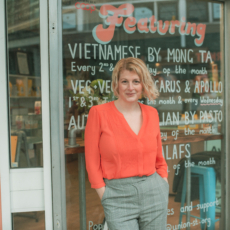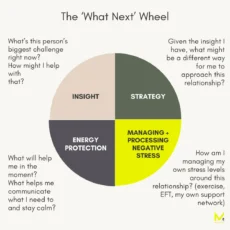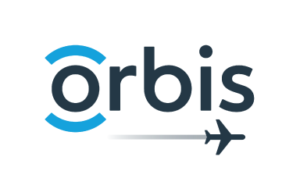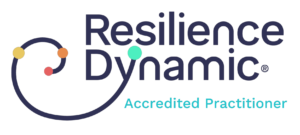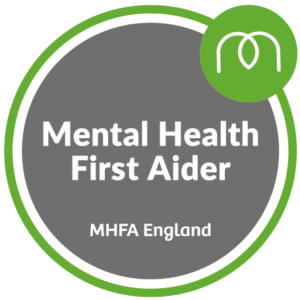I’m writing this after a couple of days of increasingly upsetting headlines, because there’s nothing to trigger our feelings of helplessness like seeing awful things happen in a different part of the world.
This isn’t a list of practical actions you can take to support others, plenty of better qualified people are writing those, these are tools to support you. Because if the last two years has taught us anything, it’s that fixing your own oxygen mask first is critical if we’re to help others. So here we go:
Top of the pops style countdown, in at 3:
Mental Health First Aid England’s Stress Container
This Mental Health First Aid England tool is a reminder that we all have finite capacity to deal with stress. And when our stress container is full it overflows – uh-oh. Unless we have some ways to release the valve at the bottom of container, to let go of or process the stress. This might look different for different people but for me it means using Emotional Freedom Technique (EFT or tapping) to process big feelings, fresh air and exercise and having a handful of close friends I can talk to if I need to talk something through. What helps you?
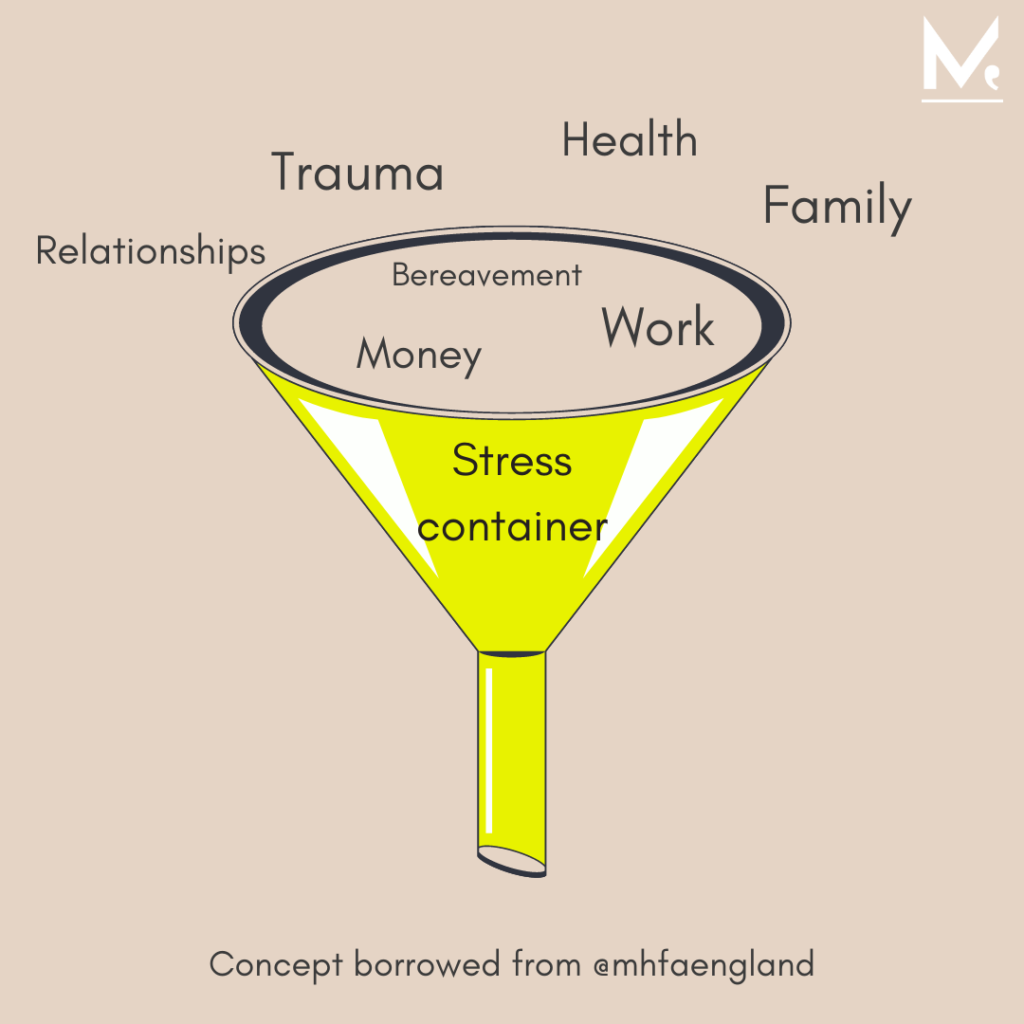
Almost nudging the top spot, at two we have:
Saying thank you
Yup you heard me right! Two very small, powerful words is how simple this one is. Expressing your gratitude out loud to another human being triggers some really positive brain chemistry – specifically releasing serotonin and dopamine, responsible for feeling happy and motivated (respectively.) Not only this, saying thank you reduces the stress hormone cortisol and as a result can significantly reduce your stress levels:
Why not try:
- Saying thank you to someone right now. Be specific about what you appreciated about them and the positive impact that had on you.
- Keep a gratitude journal – this can be as simple as jotting down the things you are grateful for in a notebook at the start or end of the day. Do this for week and notice the impact.
In at number one, for the 83rd week in a row, is…
Stephen Covey’s Circles of Influence.
Covey says that we choose to spend time in one of three circles: focusing on what we can control, what we can influence and what concerns us, but that we can neither influence nor control.
Not only does it make us feel helpless spending time lots of time in our circle of concern, scrolling the news headlines constantly for example, worrying about government policy (or lack thereof) but in doing so, our influence in the world shrinks.
But by choosing to operate from our sphere of influence, our influence in the world actually grows. And it feels better to be pro-active. Right now this might look like reaching out to colleagues, friends and family to check how they are doing, making a donation to a charity you trust or even making proactive choices to consume news from reliable trusted sources is a way of exerting your influence.
Our circle of control is a really good way of resetting our mood. Ever felt the urge to clean out a kitchen cupboard? That’s you going into your circle of control – doing something completely within your control helps you feel like you have some agency, you can make a difference! I’m all for small acts of taking back control as they put us in a much more positive brain space.
This is not a list of practical ways you can support others in their time of need, but it sort of is, because by conserving your energy and looking after yourself, you’ll be in the best possible shape to make a difference in the world.

